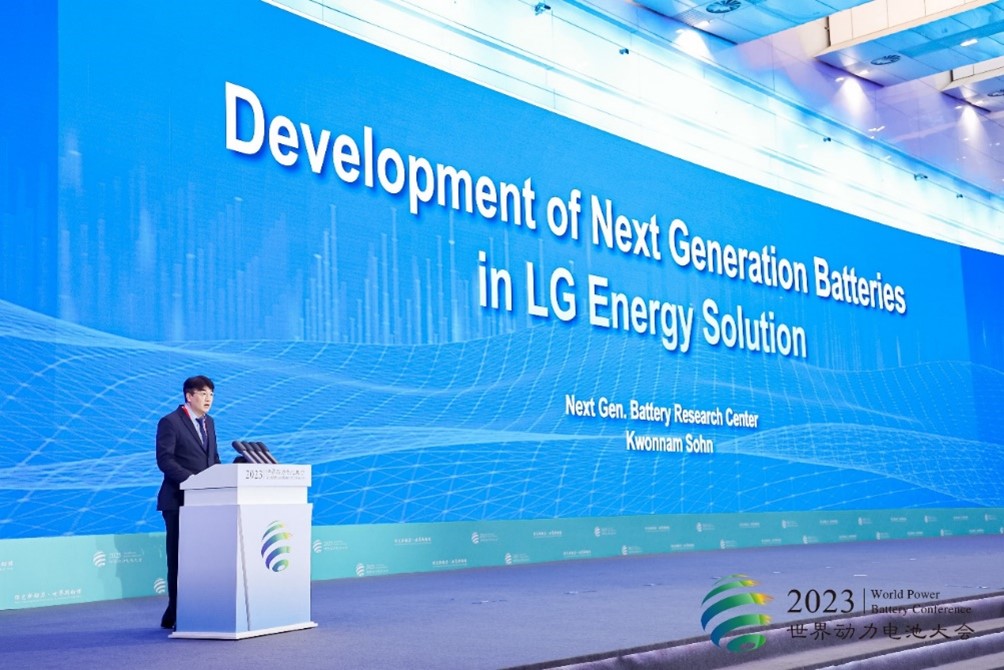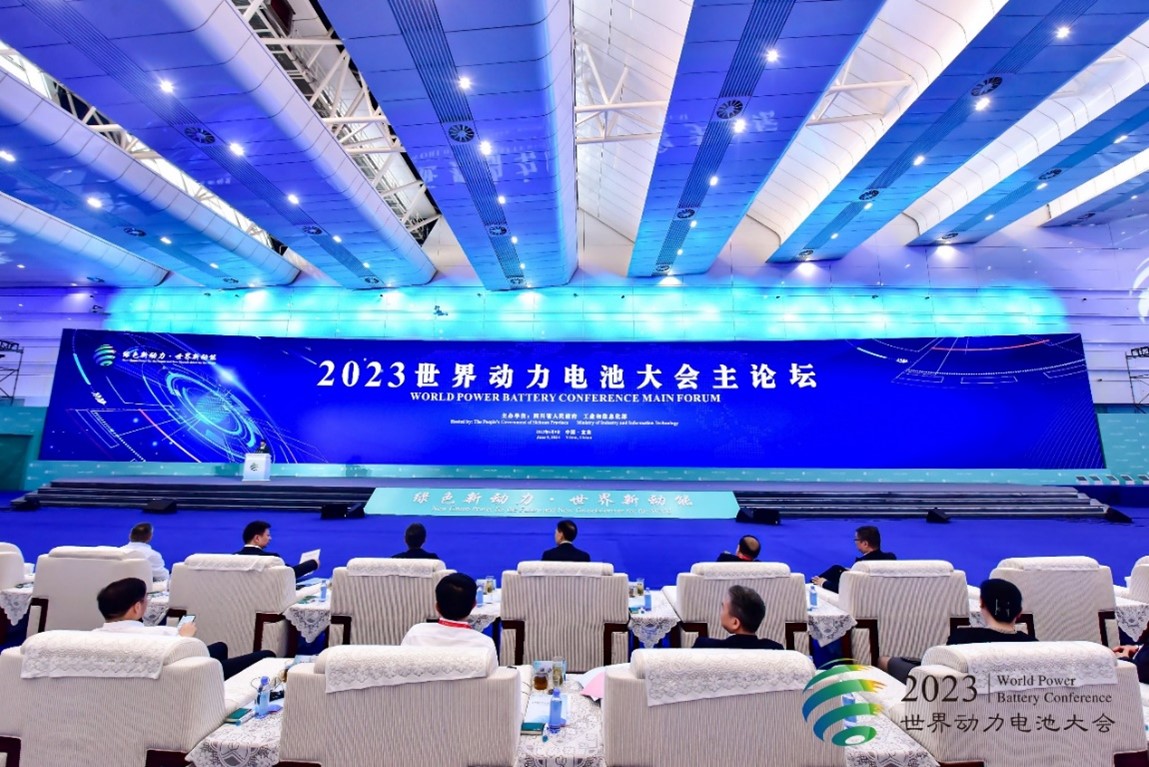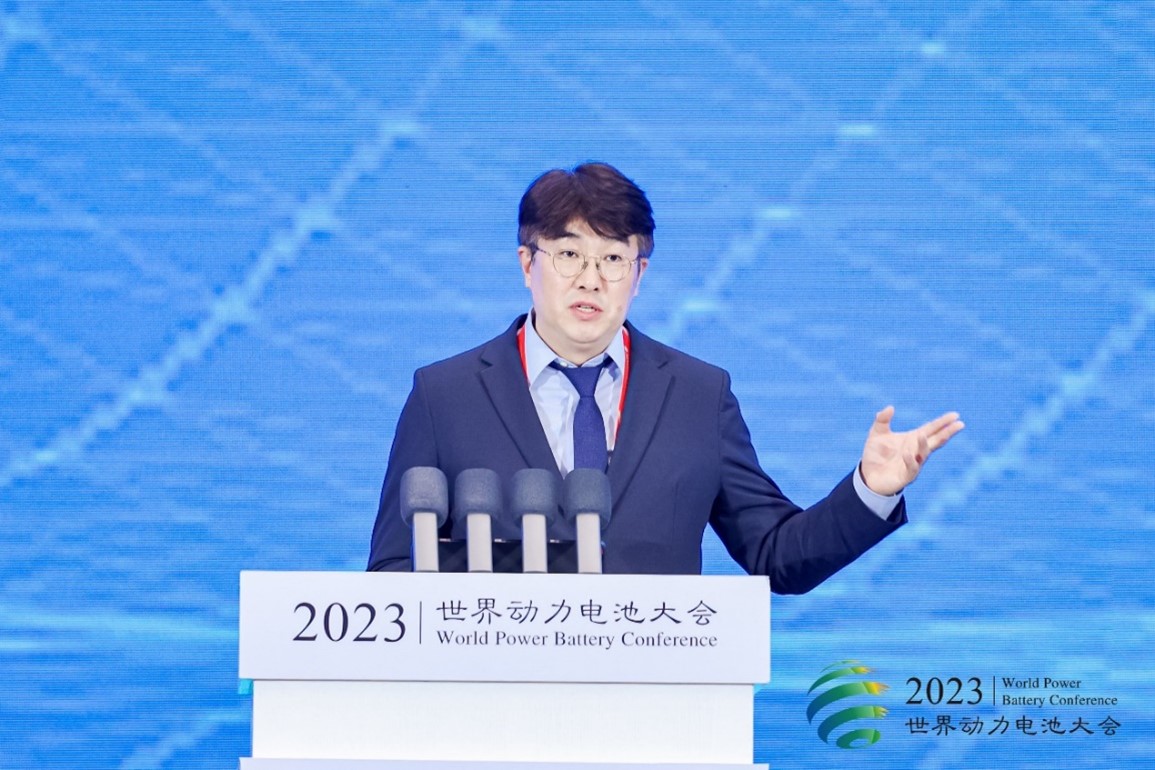On June 9, LG Energy Solution (LGES) graced the stage of the World Power Battery Conference 2023 (WPBC 2023) held in Yibin, China, to share its vision and strategies designed to advance the battery industry. During the conference, LGES shed light on its continuous efforts to develop cutting-edge next-generation battery technologies.
Titled “New Green Power for the Future and New Growth-Driver for the World,” the conference gathered top executives of over 300 leading global companies to discuss the battery industry’s current state and the ways we can accelerate progress.
Positioned as an industry-leading company that drives innovation in clean energy transition, LGES made it into the conference’s prestigious list of “Top 15 World’s Enterprises of Outstanding Contribution to Industry Development.” This recognition not only further solidifies the company’s status as a frontrunner in the sustainable energy sector, but also backs its leadership and major achievements in this rapidly growing industry.
Kwonnam Sohn, Head of LGES’s Next-Generation Battery Research Center, gave a keynote speech outlining the strategies for next-generation battery development as well as the innovative approaches required to propel the battery industry into the future.
On top of clearly explaining the remarkable contributions LGES has made to enhancing battery performance, Sohn also highlighted four key performance factors for next-generation pure electric vehicles (EVs): driving range, charging speed, safety and cost.
LGES has already made significant progress in improving the driving range of EVs, which are now capable of driving over 600 km (373 miles) per charge. Additionally, through innovation in cathode materials, the battery maker has improved energy density and accomplished rapid charging which can power a battery to 80% in just 20 minutes.
The company has also enhanced safety through the development of advanced battery technologies, such as the Safety Reinforced Separator® which increases safety with better heat resistance thanks to an enhanced ceramic coating.
What’s more, LGES’s next-generation batteries aim to reduce raw material costs by 30-40% compared to existing batteries to achieve a production cost equivalent to internal combustion engine (ICE) vehicles, marking a significant milestone in cost reduction.
LGES strives to secure future readiness by developing next-generation battery technologies. The company plans to commercialize polymer-based solid-state batteries by 2026, lithium-sulfur batteries by 2027, and sulfide-based solid-state batteries by 2030. Solid-state batteries are rechargeable batteries with a solid-state electrolyte between a cathode and an anode, enabling high energy density and high capacity with a low risk of combustion. Lithium-sulfur batteries are made from lightweight materials, such as sulfur-carbon composite in the cathode and lithium-metal in the anode, giving them an energy density 1.5 times higher than conventional batteries.
Under its core theme of ‘Innovation,’ which was put forward by the WPBC to shift the sector’s focus onto the future of automotives and batteries, LGES will persist in prioritizing technological development and open innovation as it endeavors to build the most environmentally friendly and competitively priced battery technologies.
“By collaborating with leading universities, startups, and research institutes, we are able to drive technological innovation in the global battery industry and continuously fostering various technological advancements to finally realize the commercialization of next-generation batteries,” said Sohn.


